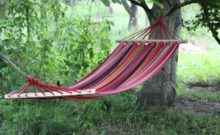As I was itemizing expenses for my tax return I came across some startling documentation: I spend a lot of money on bird food. There is one particular chickadee that could probably be claimed as a dependent on my tax return. He sits at the bird feeder on a daily basis eating his fill of black oil sunflower seeds. I know it’s him because he has a damaged foot and often stands in the feeder on one leg.
The finches like a specific kind of thistle seed so Debbie and I have a special feeder just for them by the dinning room window. We eat our food on one side of a pane of glass and they eat their food on the other side of the window and we enjoy each other’s company.
There is a flock of redpolls that take my daily offerings in eager anticipation of their return to the Artic. Yes, they winter in Minnesota and then return to Canada for the summer! For awhile they were getting on my nerves. Like many humans I know they are not grateful enough for my daily gift of bird food. The technical term for it is “bill sweeping.” What bill sweeping means is they use their beaks to push the less preferable food off of the feeder and then fly away in foul disgust when they don’t find what they are looking for! Now I buy a special blend just for them and they are content – not particularly grateful as far as I can tell – just content to pack on the fat layer needed to return to the tundra.
While I was investigating my redpoll problem I ran across a curious fact. Many commercial wild bird foods are made up of seeds and grains that birds do not particularly care to eat. We give it to them because it is cheap and easy for us, just not particularly palatable to them. Millet is a great example, easily grown and without many local agricultural uses – so we see it in bird feed! Even the scavenger birds like doves would rather have seeds, like cracked corn, that pack more calories and nutrition. Yet for the longest time I kept offering them the cheap stuff.
I also found out that feeders can not just be installed anywhere. Birds have to feel comfortable. Some birds like open space in order to feel comfortable. Some birds like nearby limbs and bushes for perching. The desire to be fed may be strong, but they will only eat if they feel safe.
The other day I was chatting with the pastor of a church that is facing a feeder problem of their own. The congregation has been offering some standard spiritual food and now the number people coming to the feeder is way down. They conducted some focus groups among those who no longer attend and kept getting the same answer, “We don’t feel safe here. There is no food for us!”
Hummm…people are like birds!
So, I think we (the church – which is you and me) need to prayerfully consider what and how we offer Christ to our communities and neighbors. If people are not grateful for what we are offering perhaps we are not offering what they need! Are we offering Christ in a safe welcoming manner? Are we offering God’s grace or something that is of little value to them or you? To paraphrase an advertising slogan: “What’s in your feeder?”
In Christ,
Phil


